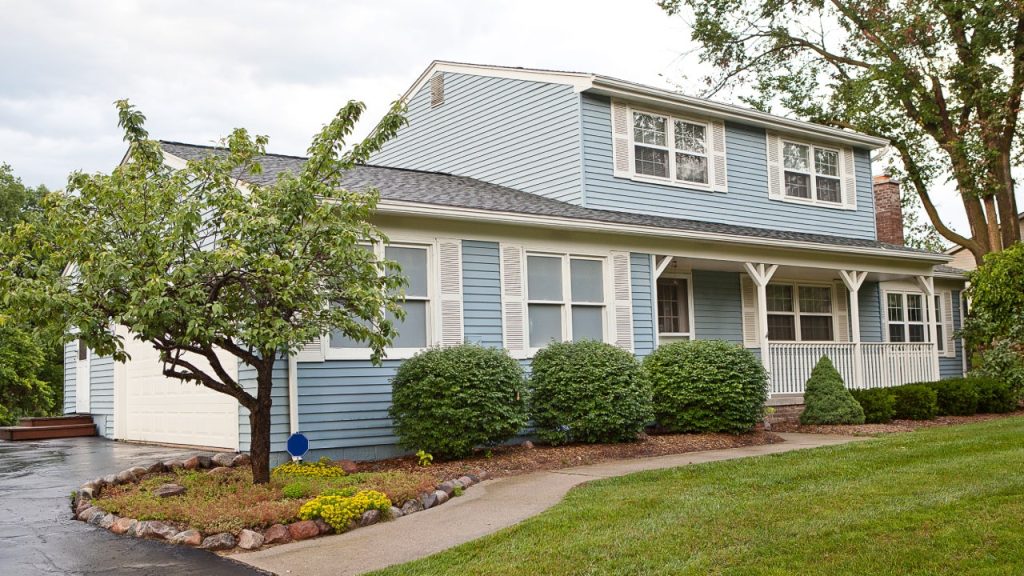William Andrew/Getty Images
Thinking about selling your Great Lakes State home? Prices here have been increasing for at least the past five years, according to June 2024 Redfin data, so you might stand to earn a good profit on the sale. However, no home sale is all profit. Before you list your Michigan home, it’s essential to consider closing costs and additional expenses involved in the selling process. Here’s what you need to know about the cost to sell a house in Michigan, plus strategies to minimize your outlay as a seller.
Sellers’ closing costs
As in any state, home sellers in the Michigan market should expect to pay certain closing costs, which are the expenses associated with finalizing the property sale. Michigan’s average closing costs average 2.7 percent of a home’s sale price, according to the most recent data from CoreLogic. That’s one of the highest percentages in the country, but given that Michigan’s home prices are relatively low, it all balances out: 2.7 percent of $273,300, which was Redfin’s median home price in the state as of June, comes to $7,379.
Keep in mind that the entire tab for closing costs is not paid by the seller alone; each party in the transaction has their own portion to pay. Among the most common closing expenses for sellers are:
- Transfer taxes: Sellers are typically on the hook for Michigan’s real estate transfer taxes, which are fees associated with transferring homeownership to the buyer. The current transfer tax rate in Michigan is $4.30 for every $500 in value — so, if your home sells for the state median price of $273,300, your transfer taxes would total about $2,350.
- Title-related expenses: Sellers may also be responsible for costs like title search fees and title insurance, which protects against claims to ownership. Who pays for these expenses can vary depending on the transaction.
- Escrow fees: Sellers may also be asked to contribute to an escrow fee for managing transaction funds. This cost is variable and negotiable, often allowing for sharing with the buyer.
- Property taxes and HOA fees: State and local property taxes must be paid right up until the closing date. If the property is within a homeowners association, sellers are also responsible for any HOA fees accrued until closing.
- Concessions: Many home sellers offer concessions to sweeten the deal, such as covering the cost necessary repairs. If this is the case for you, those funds will be due at closing.
- Legal fees: While Michigan does not require home sellers to hire an attorney, it’s smart to consider doing so anyway, to protect your interests in such a significant financial transaction. Legal fees will vary based on the transaction and are also payable at closing.
Real estate agent commissions
Both the buyer’s agent and the seller’s agent earn a commission on a home sale. While commission rates are negotiable, they typically average somewhere between 2.5 and 3 percent of the home’s sale price, per agent. So on a median-priced $273,300 Michigan home sale, each agent would stand to make between $6,832 and $8,199.
Of course, home prices vary widely across different areas of Michigan. For instance, the median sale price in Ann Arbor is much higher than the statewide median at $494,000; 3 percent of that would come to $14,820.
It used to be that the seller nearly always paid the commissions for both agents, their own and their buyer’s, which would double these costs. However, due to a lawsuit settlement involving the National Association of Realtors and many large brokerages, buyers may now be responsible for paying their own agents directly. Be sure your contract stipulates who is paying for what very clearly.
Home preparation and moving costs
A positive first impression can significantly influence buyers’ decisions. Enhancing your property’s appeal to potential buyers may involve investing in minor repairs, staging, professional photography and professional cleaning, among other considerations. Even simple improvements like planting flowers or repainting the front door can enhance curb appeal. Your real estate agent can offer personalized advice on the most effective strategies for your home.
Additionally, remember to budget for the cost of moving everything to your new home after the sale. According to HomeAdvisor, professional movers average around $1,700 for a local move, but costs vary depending how much stuff you have and how far it’s being hauled. Long-distance moves can be much more costly.
How much do I get from selling my house?
The final amount you’ll pocket from selling your home can vary significantly depending on factors like how much you paid for it, how much you invested in repairs and upgrades over the years and your total closing costs. Your net proceeds would be whatever is left after accounting for all the expenses associated with the sale, including paying off the remaining balance on your existing mortgage.
Reducing costs
Home sellers can explore several tactics to potentially lower their transaction expenses.
- Consider listing the property “as-is,” especially if it’s not in perfect condition. This signals to potential buyers that you won’t be spending money on repairs or upgrades.
- Negotiate a reduced real estate commission rate. Even a small difference can result in big savings, especially for a higher-priced home.
- Collaborate closely with your agent to pinpoint the most cost-effective strategies for marketing your property and attracting the highest possible price.
- Take the time to compare and get quotes from various service providers, like landscapers, cleaning services, attorneys and title companies, to find the best deals.
Alternatives
Instead of following the traditional selling route, consider these alternative options:
- Sell to an iBuyer or cash-homebuying firm: Companies that buy houses pay in cash and close much more quickly than traditional, agent-assisted sales can. They also often buy homes in as-is condition, which can be very appealing if your home needs significant work. However, the prices offered will be lower than what you’d likely get in a traditional sale.
- Sell on your own: For sale by owner transactions mean you act as your own agent, taking charge of marketing and selling your property independently. This lets you avoid paying a listing agent’s commission — but it’s also a lot to take on by yourself.
- Rent it out instead: If you don’t need the proceeds from a sale immediately, think about renting out the property to a tenant, which can provide steady income over time. Being a landlord can be challenging, though, so make sure you’re ready for the responsibility.
- Leverage your equity: If you do need the cash but would rather not sell if you don’t have to, look into how much home equity you’ve accrued over the years. You may be eligible for a home equity loan or line of credit.
Next steps
Prior to listing your home for sale, do your due diligence as a seller: Carefully calculate expenses, conduct thorough research and estimate potential selling costs. If you give yourself the green light to move ahead, consider partnering with a local real estate agent who has a comprehensive knowledge of your Michigan area. A Realtor’s skill and expertise can help ensure you sell for the best possible price while minimizing costs.
FAQs
-
Not including real estate commissions, closing costs in Michigan average about 2.7 percent of a home’s sale price, according to data from CoreLogic. On a $300,0000 home, that comes to $8,100. But keep in mind that amount is not paid entirely by the seller — the cost is shared with the buyer, each with their own specific expenses to cover. If the home you’re selling still has a mortgage on it, don’t forget to include the cost of paying that off in full as you figure out your closing costs.
-
Yes. Selling a house doesn’t legally require hiring a Realtor, agent or broker in any state. Some sellers choose to handle the sale themselves through a for-sale-by-owner approach, but this involves considerable effort and means losing out on a professional’s expertise and guidance. Working with a seasoned agent is typically the best path to achieving a higher price and a more seamless transaction.
Read the full article here
















